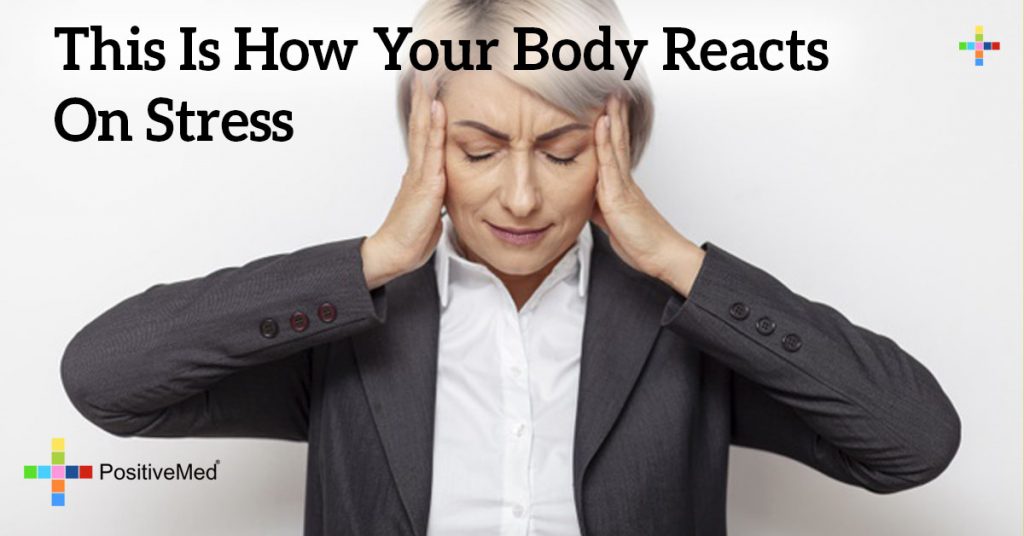
This Is How Your Body Reacts On Stress
[nextpage title=”…”]
Stress affects everyone. While this may sometimes be beneficial or motivating, oftentimes stress is harmful to the body. Stress can occur when dealing with busy jobs, financial issues, or when dealing with a difficult relationship. While a little stress can be beneficial, excessive stress can wear your body down, creating physical and mental disease.

The American Psychological Association reports that major acute stress, caused by severe instances such as a fight with a relative or an epic event such as an earthquake or mass shooting, can have multiple impacts on our health. Studies have shown that sudden, intense emotional stresses are able to trigger health issues such as heart attacks, abnormal heart rhythm, and sudden death. This often happens to people with a pre-existing heart condition, but it can happen to anyone.
Aside from just the heart, the Mayo Clinic explains that severe stress can negatively impact health in many other ways. Stress causes effects on the body such as headaches, muscle tension, fatigue, muscle pain, chest pain, upset stomach, and insomnia. It can also affect mood by causing anxiety, lack of motivation, restlessness, sadness, anger, irritability, and depression. Additionally, it can negatively impact behavior by causing over or undereating, drug abuse, alcohol abuse, angry outbursts, social withdrawal, and tobacco use.
Intensely stressful situations have a great impact on different aspects of our physical health. For example:
Skin
Stress can cause acne because it increases the body’s production of cortisol as well as other hormones. This tells the sebaceous glands to over-produce oil. Once the skin is oily, it is more prone to become clogged and produce acne.
RELATED ARTICLE: 8 Truths About Anxiety And Stress In The Workplace
Brain
Neuroscientists at the University of California, Berkeley, have discovered that stress triggers change in the brain structure, which includes differences in the volume of white matter versus gray matter, in addition to the size and the connectivity of the amygdala.
Heart
Heart.org reports that there is an indirect link between stress and heart health. Stress affects behaviors and other factors that damage the heart including high blood pressure, smoking, overeating, and physical inactivity. Some people choose to manage stress by drinking alcohol or taking up another unhealthy habit that is hard on the heart.
Lungs
With increased heart rate during stress, the lungs absorb more oxygen, sending it to the body. A person’s blood flow typically increases by 300-400% in stressful situations. Along with the increase of oxygen, more blood cells travel throughout the body with oxygen.
[/nextpage] [nextpage title=”…”]
Weight
Stress creates cortisol, which increases appetite. This hormone can hang around long after the stress has passed, allowing people to gain weight.
It is best to learn healthy coping strategies when attempting to manage stress. Try one or two coping strategies until you find what really works for you. Practice the coping strategies until they become part of your everyday routine. These habits will help you respond to and deal with stress.
Natural stress-relief techniques often focus on relaxing your body and mind. Four natural stress-relieving techniques include:
Writing
Write down everything that is bothering you. Consider tracking your stress to find out what causes you the most stress and then find ways to cope with your triggers.
Talking about your feelings
Connect with friends, family, or a counselor to talk about your feelings. Talking about things that bother you to a fresh mind often offer a new perspective that can be helpful.
Do something enjoyable
Creating time to do something that is relaxing is really important to give your body and mind a break. Some hobbies to pick up may be gardening, crafts, writing, painting, or playing with pets.
Exercise
It is important to blow off steam. Exercise helps the body to relax and relieve stress naturally. This will also help you live a healthier lifestyle in other aspects of life that will carry over.
[/nextpage]





